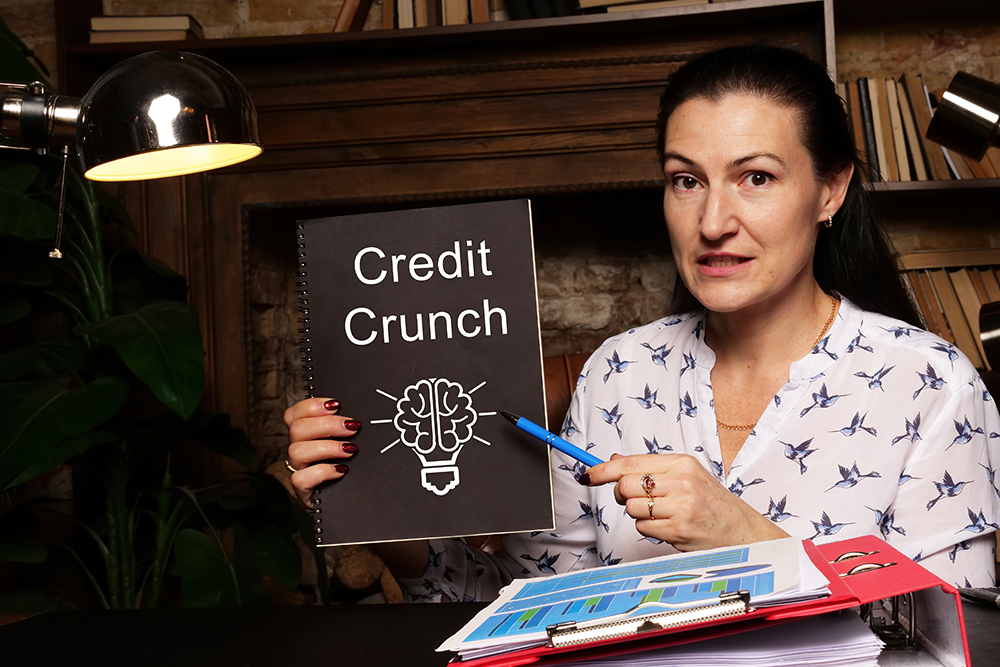There is growing evidence that a significant number of Britons are only managing to survive due to credit cards. Have things ever been this bad?
Credit cards are one of the most expensive ways to borrow money. Rates on some sub-prime credit cards can reach almost 99% per annum. Debt on credit cards is always a worrying sign for the health of an economy.
October 2022 UK Credit Card Data
- Average Credit Card Debt per household in the UK is now £2,244. Up from £1,985 in 2021.
- Average Credit Card Interest rate was 23.8%
- Total outstanding Credit Card Debt (Aug 22) was £62.5 Billion, a rise of £4.9 Billion compared to August 2021.
What's the problem with Credit Card Debt?
When credit card debt starts to increase significantly, it usually means one of two things. First, people have run out of other avenues to obtain credit. Second, there's traditionally cut back as much as they can but still need credit cards to survive.
Have people run out of avenues to obtain credit?
The first place an average British person would visit to try and pay off credit card debt would be their mainstream bank. Most people will try to get an unsecured loan and then use it to pay off their credit cards. Mainstream banks offering unsecured loans will usually charge between 7 to 14% APR, depending on their borrower's circumstances.
Surprisingly, in a recent survey, only 17% of homeowners said they would try to get money out of their property via equity release. This would, of course, be cheaper, but it would take longer to arrange with more paperwork. Decisions and payouts range from 1-3 months compared to just an hour for an unsecured loan.
If people let their credit card balances run high, it would suggest that unsecured loans from mainstream banks are beginning to dry up.
Any Evidence for a credit crunch?

Whilst we do not have any direct data to confirm that banks are reducing the availability of their unsecured loans, we can look at some circumstantial evidence. Search engine advertising spending on terms such as "Unsecured Loans" are down considerably. What previously cost lenders £18.64 per click in 2021 to advertise, now costs just £11.27. This suggests that lenders are withdrawing their ad campaigns as the products aren't there to sell. Typing the terms into a search engine confirms that mainstream lenders are no longer even bidding on these terms.
In conclusion, we think that access to unsecured credit above £2,000 is gone for a majority of people.
Can people reduce their living costs any further?
You will always have two types of people, those who refuse to accept a lower standard of living and those who cannot reduce their living standards any further.
From anecdotal evidence, we believe that a majority of those people running up credit card debt are still in the category of refusing to accept lower standards of living. Shopping centres are full, people are still eating out, and people are still attending parties. There is no evidence that people who could control their spending are doing so. Only those without the money seemed to, for obvious reasons, stopped.
What happens now?
Unfortunately, until people decide to cut back, little can be done. People need to accept that the days of cheap credit are over.
It isn't that the UK is heading for a short downturn, more a return to normal - living within its means. The last 25 years of easy credit should be seen as the exception to how an economy should work.
People are going to go bankrupt, around 330 go bankrupt each day in the UK, this could easily double. There is no stopping the bankruptcies. Hopefully, what is on the other side of this are lenders that are more careful and borrowers who live within their income.
Either way, the party is over.

